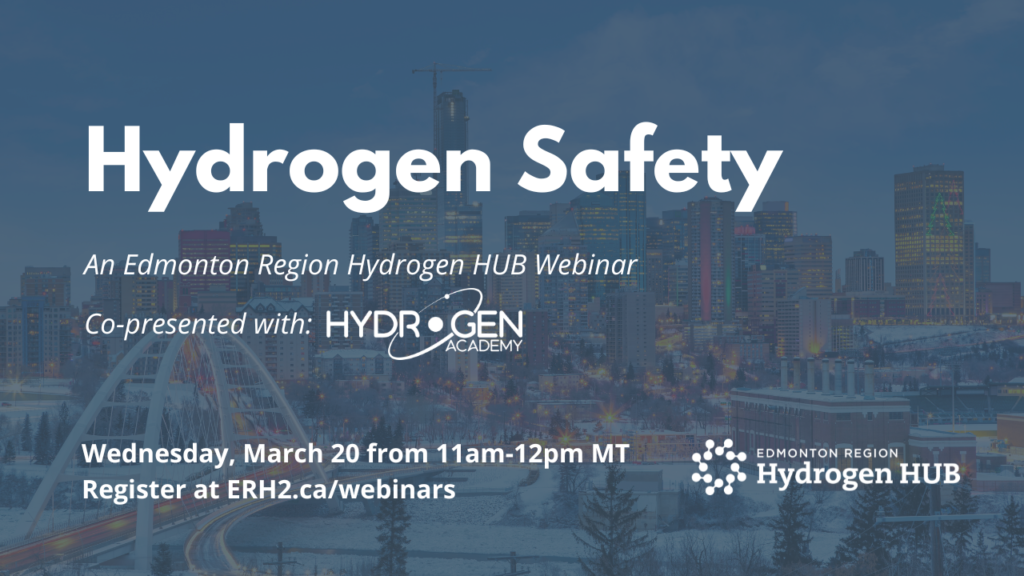
Hydrogen-Powered Waste Collection:
Fuel-Cell Refuse Trucks in Europe
Wednesday, January 31, 2024
9am – 10am MT
Presenters:
Sandra Omondi, Senior Project Officer, Aberdeen City Council
Andrew Flagg, Managing Consultant, ERM
Moderator:
Heidi Hicks, Director of Municipal Fleet Maintenance, City of Edmonton
The HECTOR project (Hydrogen Waste Collection Vehicles in North West Europe) is an EU-funded project aiming to deploy and test 7 fuel cell waste trucks in 7 pilot sites covering a wide range of operational contexts across the north west Europe area. The aim of the project is to demonstrate that fuel cell waste trucks provide an effective solution to reduce emissions from road transport. Aberdeen City Council is the Lead Partner for the HECTOR project and Sandra Omondi is responsible for managing Aberdeen’s participation in the project and co-ordinating all the project partners and comms activities. On behalf of all partners, Sandra shared the main project conclusions, operational experiences and lessons learned when it comes to deploying fuel cell waste trucks.
REVIVE is an EU-funded project, supported by the Clean Hydrogen Partnership, aiming to accelerate the deployment of hydrogen fuelled refuse trucks in Europe by developing and deploying up to 15 trucks in real-world operating conditions. Andrew Flagg leads ERM’s role as communication & dissemination partner in the REVIVE project, and introduced the project, its status to date, and some of the early learnings from the project & best practice for deploying this technology.
About the Presenters
Sandra Omondi is a Chartered Urban Planner and Project Manager. In her current role as a Senior Project Officer at Aberdeen City Council, Sandra manages and delivers hydrogen projects in Aberdeen – one of Europe’s pioneering hydrogen economies. She has led on several of the Council’s European hydrogen projects: Smart Hy-Aware which focused on hydrogen awareness and stakeholder engagement, Fuel Cell Cargo Pedelecs which delivered the UK’s first hydrogen cargo bikes and HECTOR which delivered the UK’s first fuel cell waste truck. As an Urban Planner Sandra has played a fundamental role in the development of planning policy and strategy that help achieve a net zero vision.
Andrew Flagg is a Managing Consultant in ERM’s Funded Project Management Team, leading the team’s service offering for UK projects for the development and deployment of innovative technologies in the energy sector, as well as working on large scale EU-funded projects. Andrew supports consortia of project partners for technology trials and demonstrations, providing best practice and expertise on engaging with and reporting to funding agencies such as the UK Department for Energy Security and Net Zero, Innovate UK, as well as EU institutions including CINEA and the Clean Hydrogen Partnership. Andrew delivers many projects working to develop and deploy innovative technologies at scale, such as hydrogen for transport and industry, and demand-side response technologies in housing. He has supported the delivery of these projects in the role as a coordinator, project manager and communication specialist.
About the Moderator
Heidi Hicks is the Director of Municipal Fleet Maintenance at the City of Edmonton, where she oversees the largest municipal fleet in Canada. With a career dedicated to driving service excellence, innovation and transformative change within complex, multi-stakeholder environments, Heidi is leading the charge for operational excellence and sustainability within the heavy and light duty fleet space. Heidi’s passion lies in her ability to envision systems as a whole, a true system thinker with an ability to implement strategies that optimize service delivery while reducing environmental impact. Currently, she has been instrumental in supporting her partners with modernizing the transformation of dual fuel technology, electrification, and hydrogen in order to reduce greenhouse gas emissions to modernize both our light and heavy-duty fleet.
Previous Webinars




